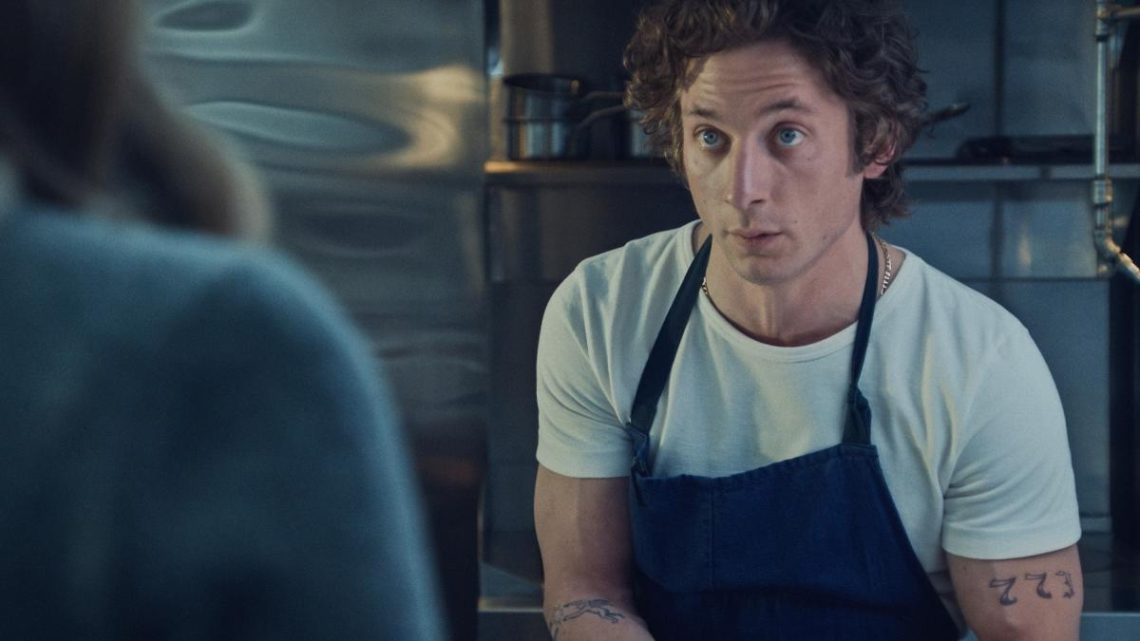This article contains details about Season 3 of The Bear.
Carmy and Sydney’s new restaurant doors are finally open, and the stakes are higher than ever on Hulu’s hit show The Bear. On its surface, the third season of Chef Carmy’s story is about the constant effort and unforgiving perseverance it takes to open a successful, fine-dining restaurant. However, as Carmy (Jeremy Allen White) and the rest of his team (including Ayo Edebiri as Sydney) pursue financial solvency and a Michelin Star, it becomes clear that what makes this season resonate is its honest depiction of grief.
“I just wanted you to know that some of us here, we probably know how you’re feeling,” Carmy tells Marcus (Lionel Boyce) when he returns to the kitchen after the death of his mom. Carmy means that he and the rest of the staff understand overwhelming grief because of the unexpected suicide of his brother Michael, who owned the Italian beef restaurant that Carmy takes over in Season 1. But, as the season progresses, it becomes clear that Carmy and the other characters’ losses are even more far-reaching.
“Grief is hard, and it’s pervasive, and it’s not just when people die. It’s when you move, when you lose a job, when you have some kind of identity change. Any kind of transition can bring loss,” says Sonya Lorelle, a clinical associate professor at the Family Institute at Northwestern University who worked with fellow professor Katherine Atkins to reconceptualize grief and create a new grief model. Their Transcending Model of Grief and Loss recognizes how both death and nondeath losses affect a person’s life and identity development.
This is exemplified in the latest season of The Bear, says Rebecca Feinglos, a grief support specialist and the founder of Grieve Leave, a grief-support platform and worldwide community. Whether it’s the death of Marcus’s mom, Carmy’s messy breakup with Claire (Molly Gordon), his cousin Richie’s divorce, his sister Sugar’s estrangement from her mother and simultaneous transition into motherhood, the loss of Tina’s job before she found her place in the kitchen, or the closing of Chef Terry’s three-starred restaurant, this season is defined by grief.
“[Season 3] gives us example after example of nondeath related grief, and I think that’s so important for the media and shows that entertain us to normalize, so we can see that all of these forms of losses have pain associated with them,” says Feinglos. Also, as someone who has experienced divorce-related grief herself, Fienglos personally related to Richie’s (Ebon Moss-Bachrach) storyline this season as he finally took off his wedding ring and navigated his ex remarrying.
Fan Rosalinda Romero has been posting about The Bear on TikTok for years, explaining why it’s so relatable, especially as someone who worked in the food services industry in Chicago for years. This season, she found herself identifying with Sydney because, as someone who also experienced parental loss at a young age, she understands the impulse not to share that information with everyone she meets because it can be such a heavy topic. Romero also appreciated Sugar’s (Abby Elliott) storyline. “Even though Sugar this season is gaining something — having a child — there is a loss of her former self because when you become a parent you are a new person, [it’s] a new [type of] life.”
As a fiction writer, fan Eric Schlich, was drawn to the final “funeral service” at Chef Terry’s (Olivia Colman) restaurant Ever before it closed. At dinner, one of the chefs is joking with Sydney about how he repurposed his trauma over pea-shucking into developing pea pancetta. This exchange resonated with Schlich because of the way grief can be repurposed to create art, and it reminded him of an earlier moment in the season when Marcus experiments with white violet desserts because violets were his mom’s favorite flowers.
One of the biggest reasons these characters’ storylines are so relatable is that they reveal what grief is really like. Lorelle and Atkins find that the problem with most media portrayals of grief is that loss is often reduced to stages, but that’s not how people experience loss. Their research and new model describes how people’s initial reactions to grief often leave them feeling lost and adrift, and they oscillate between times of compartmentalization (focusing to accomplish daily tasks that must be done, such as going to work or making your kids’ lunch) and processing (making sense of a new way of life).
The characters this season exemplify this dichotomy. They compartmentalize in the kitchen to make The Bear restaurant successful and are also processing their individual losses. While there has been some criticism that this flashback and clip-filled season of The Bear is disjointed and has too many one-off episodes, Feinglos finds it fitting for the subject matter.
“Grief is disjointed. The stories that we tell about grief can also be disjointed, and so I see this season as a clear reflection of what our grief feels like in real life,” she says. “It is not neat. It is not linear. There are no stages, and it is all grief and it’s messy. This season is a messy season, and it’s OK.”
The Bear Season 3 is now streaming on Hulu.
This article contains affiliate links; if you click such a link and make a purchase, we may earn a commission.




